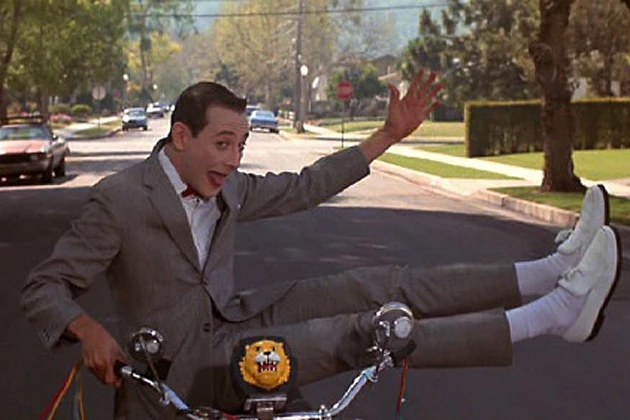#46 - The Big Short
Adam McKay, 2015

In the years leading up to the collapse of the American housing market, a handful of people who work in finance try to predict the outcome and resolve the situation.
As far as major cinematic releases go,
The Big Short is a very peculiar one. At first glance, it seems like a somewhat off-beat comedy about white-collar types that boasts some fairly potent star power (to say nothing of a director whose previous films are broadly comical Will Ferrell vehicles), but then it turns out that there's more to it than that. As if the fact that this apparent comedy runs for over two hours in length isn't enough to raise a metaphorical eyebrow, the fact that it's based on a true story about the events leading up to the 2008 financial crisis will certainly cause such a reaction.
The Big Short then ends up coming across as a dramatisation of the events leading up to the crisis as seen through the eyes of various financial entrepreneurs operating at different levels inside and outside the industry. It begins with one hedge fund manager (Christian Bale) cluing in to certain discrepancies in the housing market that have resulted in said market becoming unstable and threatening to collapse within a few years. He opts to exploit this for his own gain, with his plan not only drawing skeptical reactions from overconfident bankers but also gaining the attention of multiple high-finance players who want their own pieces of the action. Of particular prominence within the story are an opportunistic trader (Ryan Gosling), a temperamental manager (Steve Carell), a retired banker (Brad Pitt), and the pair of trading neophytes (John Magano and Finn Wittrock) who seek out Pitt's help.
Being an adaptation of a non-fiction book concerned with exploring the ins and outs of the financial world,
The Big Short ends up having the bulk of its dialogue consist entirely of extremely mundane-sounding conversations about complex economical concepts. This does render the film a little difficult to follow as characters are cast adrift in roiling seas of jargon; however, it soon becomes clear that any confusion for an audience is apparently by design. There's a thick layer of self-awareness to the events of
The Big Short as multiple characters will break the fourth wall in order to explain exactly what is happening at any given moment. Occasionally, this gives way to fantastic segues where the film acknowledges just how ostensibly boring such explanations can be and comes up with all sorts of methods of conveying the necessary information to a mass audience. The most prominent examples involve cameo appearances by certain celebrities who stop the film in order to to help the audience keep up. However, such scenes can and do backfire because their sudden appearance is enough to throw off the previous scene's momentum; this is especially true of the first such cut-away gag, which involves
The Wolf of Wall Street's Margot Robbie delivering exposition while sipping champagne in a bubble bath and is so jarring that I've barely registered anything she's said before the film gets on with its plot. Things do improve by the time that a scene of pop star Selena Gomez playing a game of cards is used to explain one very convoluted financial situation, but it's still an obtuse film that demands your unwavering attention in order for you to keep up.
It's at this point where I question whether or not
The Big Short truly succeeds as a film. It definitely feels like an important film, if only because of its mission to break down an incredibly dense and dry true story into a more palatable work of fiction. It aims to do this by filtering the events through a comedic lens, though whether or not this approach works varies extremely wildly from scene to scene. As if in acknowledgment of this approach and its potential flaws, McKay and co. use many different methods in terms of both narrative and technique to keep the film moving along at a brisk pace. The jittery camerawork and frequent cutting come across as deliberate methods of adding urgency to a film that seriously needs it, plus the actors on display are capable of keeping up with the film's speedy progression. However, the attempt to spin a comedy out of the proceedings (especially one as dependent on exposing the sheer artifice of filmmaking as
The Big Short ends up being) threatens to seriously undermine the film. I may understand why the film went with this particular angle and can appreciate its cleverness to a degree, but I ultimately didn't get much amusement out of its humour. There's nothing overtly objectionable about said humour, but I'm still unsure whether or not its abundance ultimately works out in the film's favour or not. Cases can be made either way, but that only has the effect of making
The Big Short feel like too much of a compromise, albeit a rather interesting one.











